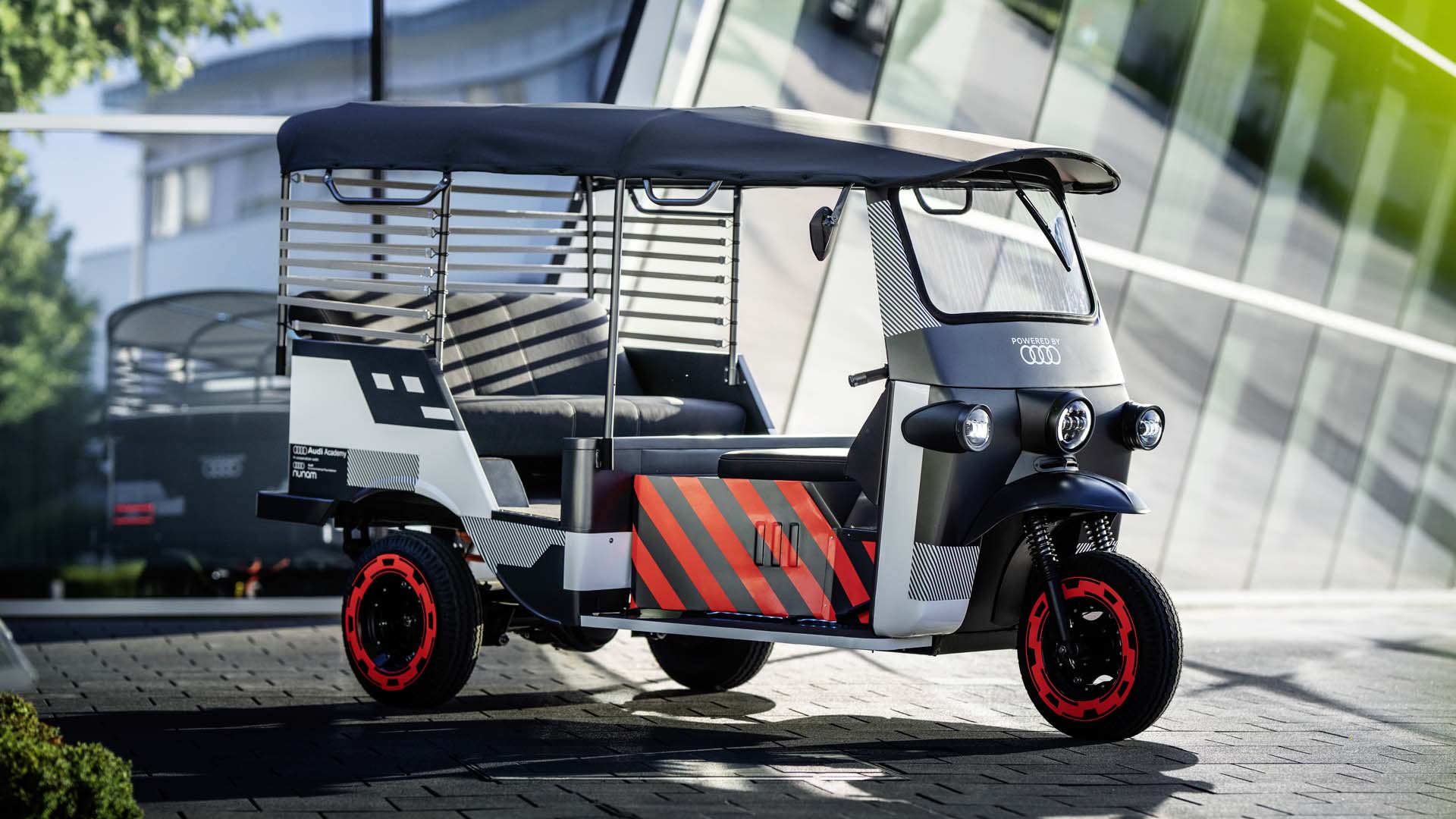

Audi has been partnering with German-Indian nonprofit startup Nunam to find interesting things to do with E-Tron batteries after they’re done working in its cars. Its latest project sees those batteries finding a new life in electric rickshaws, with a focus on making mobility available to women and using other former E-Tron batteries to build systems for solar charging, the companies announced this week.
Electric car batteries are a real recycling problem. In an ideal world, we’d be treating them like lead-acid starter batteries, with a system to cycle out the chemicals and metals and put those back into use in new batteries. Unfortunately, we’re not there yet and so second-life options are the best we’ve got to keep those batteries in use, in lower-stress installations like power storage, after their automotive life is over.
E-Trons are luxury, performance cars (they’re Audis, after all) and the demands on their batteries are high. At the point when a battery is declared not efficient enough to store or deliver power to the car—when the range is impacted, for example—that doesn’t mean it’s a total bust for other applications. So moving them on to a new life in tuk-tuks isn’t fobbing off the problem, it’s reconfiguring the big packs in a way that keeps the cells that are still working well in use.
Nunam founder Prodip Chatterjee said putting those used batteries in rickshaws makes sense. “For vehicles with lower range and power requirements, as well as lower overall weight, they are extremely promising. In our second-life project, we reuse batteries from electric cars in electric vehicles; you might call it electric mobility ‘lite’. In this way, we’re trying to find out how much power the batteries can still provide in this demanding use case,” he said in a statement.

The tuk-tuks have been fully developed by Audi’s trainee engineers, so they’re not just a badge slapped on something. Nunam will take them to Bangalore, in the south of India, where they’ll be specifically supplied to a non-profit organization to help women move goods around to markets, improving their economic futures. The electric tuk-tuks should arrive early next year, the companies said.
India’s electricity grid is still fossil fuel-heavy (especially coal) compared to, say, Europe, so Nunam will also be implementing something it did at an earlier stage in the project with Audi. One of the initial second-life uses for E-Tron batteries was to make them into power walls that were used to collect solar energy and provide lighting and power, via a micro-grid, to night markets in Uttar Pradesh.

To power the rickshaws, Nunam is planning to use the same principles: Use E-Tron batteries to store energy collected by solar panels, so that the charge can then go into the rickshaws over night and have them ready for another day of riding by the morning. As an off-grid solution it’s neat and also offers the batteries a life even after they’ve stopped being useful for the tuk-tuks and can be moved on into storage solutions.
Nunam are monitoring the project, which has an open-source implementation, and will gather and publish data on Circular Battery so that other projects can learn from how it goes and hopefully find more efficient ways to extend batteries’ lives.
Got a story tip? Mail it in on tips@thedrive.com